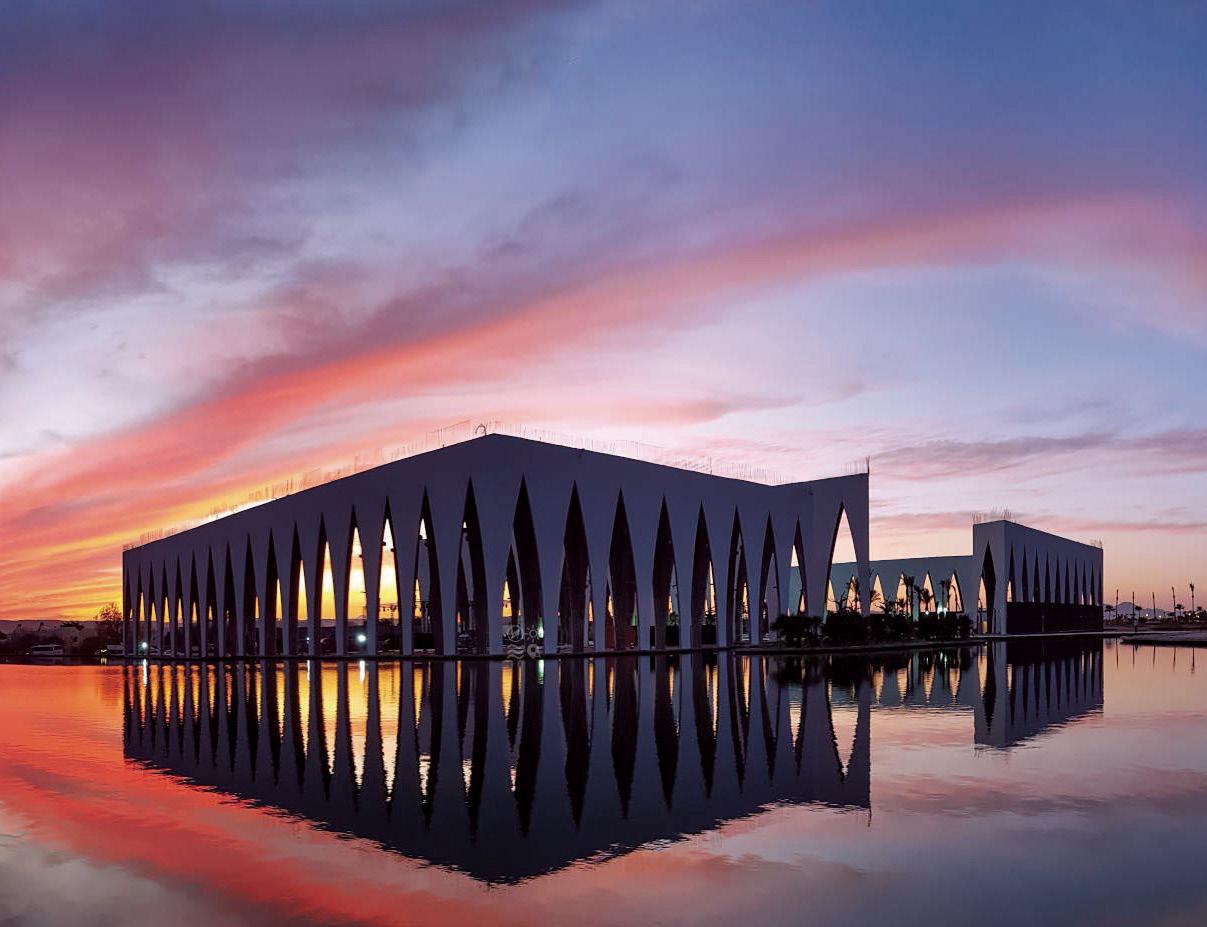
4 minute read
Sustainability 20 Smartest Cities In The World
Here are the top 20 cities improving energy efficiency, reducing CO2 emissions, and increasing the well-being of citizens, according to the Institute for Management and Development in partnership with the World Smart Sustainable Organization.
1 Zurich
Zurich has embraced a circular economy, introduced eco-friendly waste management, and digitized its infrastructure. Zurich Airport has reduced its CO2 emissions by about 50% over the last 25 years, and it plans to be net zero by 2040. The Swiss Federal Railway runs on 90% hydropower and plans to be powered by 100% renewable energy sources by 2025.
2 Oslo
The capital of Norway has a strong innovation culture. The city promotes ecodesign and architecture and is also highly digitalized, from its healthcare to shipping ports. Norway is accelerating its adoption of electric vehicles (EVs). According to data from the Norwegian Electric Vehicle Association, 2022 was another record for EV sales in the country, which showed 79.3% of all new cars sold during the period were fully electric, up from 64.5% in 2021.
3 Canberra
Canberra has a sustainable network of public transport options and is the first Australian city to encourage ride-sharing services so people can travel as groups and cut back on solo driving. Canberra is powered by 100% renewable electricity generated by wind and photovoltaic power.
4 Copenhagen
The Danish capital has invested in intelligent transportation systems (ITS) and intelligent traffic management to control traffic and optimize signals in real-time, resulting in more efficient flows of bikes and buses and reduced accidents. According to a Mckinsey & Company report, ITS will help Copenhagen achieve its vision to have 75% of all the trips in the city be by bike, public transport, or on foot by 2025.
5 Lausanne
This Swiss city is working toward being diesel-free by 2030. Hydropower accounts for roughly 57% of Switzerland’s domestic electricity production, making it the country’s most important domestic source of renewable energy.
6 London
Most sectors in London have seen a significant reduction in emissions over the last few decades, mainly due to the nationwide decarbonization of electricity, government data showed. The city’s CO2 emissions were 28.1 million tonnes in 2020, down from 31.5 million tonnes in 2019.
7
Singapore
Singapore has a master plan for community-focused health where infrastructure like pedestrian walkways, underground car parks, and outdoor green spaces exist to complement the citizen-patient experience. Singapore’s Housing Development Board offers citizens access to affordable, quality homes.
8 Helsinki
According to the city’s pocket statistics, the emissions of greenhouse gases have been cut down by 33% since 1990. The city has 3,470 city bikes with 347 bike stations. Air quality was good or satisfactory 95% of the time in the city in 2022.
9 Geneva
Geneva’s energy policy is designed to be 100% renewable in 2050. The Swiss city has a range of public transportation options taking advantage of its topography, as it offers public excursion boats. It also encourages carpooling and car sharing and provides free-to-use bikes.
10 Stockholm
The Swedish capital launched Openlab, a creative center for solving societal challenges. The city’s leaders believe that in order to continue to grow sustainably and offer high quality in Stockholm’s city operations, new thinking and innovation are needed. The center was established to create the conditions for innovative solutions with the aim of raising the quality of life of the city’s residents.

11 Hamburg
One of the strengths of this German city is mobility. It has put importance on smart traffic management and smart parking, as well as offering comprehensive car sharing. The city plans to reduce CO2 emissions by 55% in 2030 compared to 1990 levels and by 95% in 2050 to achieve climate neutrality.
12 Beijing
Beijing’s government subsidizes the cost of public travel to boost the attractiveness of public transport and reduce the number of private trips, according to Statista. Major cities in China are also adopting advanced technologies and innovative approaches to minimize carbon emissions and improve urban living. According to the International Energy Agency (IEA), the country’s growing energy needs are increasingly met by renewables.
13 Abu Dhabi
Abu Dhabi has increasingly been focusing on digital innovation and sustainability to build a smart economy. The emirate’s Economic Vision 2030 aims to shift the base of its economy from natural resources to knowledge, innovation, and the export of cuttingedge technologies. Masdar City is its first sustainable city. It also houses the headquarters of the International Renewable Energy Agency, an intergovernmental organization that supports countries in transitioning to sustainable energy.
14 Prague
The capital of the Czech Republic has focused on traffic, lighting, and waste management to improve the lives of its citizens, according to PwC. It is aiming to make its transport system smoother, and with the latest technologies, it plans to create a better living space.
15
Amsterdam
Amsterdam combines multiple renewable energy sources, storage technologies, electric vehicles, and energy consumption optimization into a single, innovative smart energy management system. Its intelligent Energy Management System is expected to dramatically lower CO2 emissions and increase renewable energy’s economic value.
16
Seoul
Seoul’s e-governance system is believed to be the world’s most advanced, according to Sustainable, Smart, and Solidary Seoul. This includes expansive online government services, free access to vast databases, and opportunities for electronic citizen engagement. The city’s Gangnam Resource Recovery Facility transforms waste into energy and helps reduce landfill and power neighborhood heating.
17
Dubai
The Dubai Plan 2021 called for the transformation of about 1,000 government services, implementing initiatives on open and easy access to data, smart transport, optimizing energy resources, smart parks, and beaches, police smartphone apps, and a new master control room. Dubai’s police force has a smart robocop that can find offenders through facial recognition technology. As of 2023, the city’s digitization rate of government services stands at 99.5%, achieving the objective of a paperless government.
18
Sydney
Sydney has implemented a strategy to cultivate vibrant, livable places with the use of data and technology to help optimize street space allocation and prioritize active transport. Data is used to understand the community’s needs and preferences, providing efficient services to the community.
19
Hong Kong
Hong Kong has established a real-time arrival information system for green minibuses and continues to encourage public transport operators to open up their data. It also plans to set up a $1 billion Smart Traffic Fund to promote research and application of vehicle-related innovation and technology.
20
Munich
Munich introduced a project to promote a sharing economy, the reuse of resources, innovative business models, and the focused, socially compatible use of modern technology, including e-mobility, energyefficient street lighting, and energy consumption.









